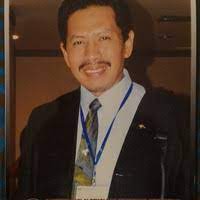Scientific Program
Keynote Session:
Title: ENTREPRENEURSHIP AN IDEOLOGY THAT DRIVES THE ACCEPTANCE OF INEQUALITY
Biography:
Robert N. Eberhart (Ph.D. Stanford 2014) directs research at Stanford University Graduate School of Business where he studies entrepreneurship and how it shapes society. He earned his Ph.D. in Management Science from Stanford University and his academic publications span topics such as new theoretical constructs on how institutional change has complex effects on new firms and how entrepreneurship is changing society. He sits on the boards of technical ventures and non-profits in the U.S. and Japan. Before his academic career, Dr. Eberhart was a partner at Pacific Rim Partners, and he was the founder and CEO of WineInStyle KK in Tokyo, Japan. He has advised governments in the U.S., Japan and Sweden. Prior to founding WineInStyle, Dr. Eberhart was an executive with semiconductor and electronics hardware companies.
Abstract:
We explore the acceptance of new contingent work relationships in the United States to reveal an emergent entrepreneurial ideology. Our argument is that these new work relationships represent a new social order not situated in the conglomerates and labor unions of the past, but on a confluence of neo-liberalism and individual action situated in the discourse of entrepreneurialism, employability and free agency. This new employment relationship, which arose during the economic and social disruptions in the 1970s, defines who belongs inside an organization (and can take part in its benefits) and who must properly remain outside to fend for themselves. More generally, the fusing of entrepreneurship with neo-liberalism has altered not only how we work and where we work, but also what we believe is appropriate work and what rewards should accompany it.
Title: AGILITY IN TIMES OF DISRUPTIVE PANDEMIC
Biography:
Mehmet Kiziloglu completed his bachelor's degree in economics in Istanbul. During those years, he took active roles in numerous European Union Youth Projects and was present in many EU countries. After graduating from university, he briefly worked as a business development specialist in the private sector. Then he started his academic career with his master's degree in management and organization. Mehmet KIiziloglu completed his Phd in Business Administration at the Pamukkale University. He has experience in the area of organizational behavior with emphasis in innovation, entrepreneurship, intrapreneurship, organizational culture, organizational power, organizational learning and knowledge management. He is currently a Dr at the Pamukkale University, Management and Organization Department.
Abstract:
The world Is greatly polarized and is borne with changing thoughts and prejudices in an arena of diverse explicative management systems. Post liberalization in 1990 when the world was fighting with changing technological revolution the birth of newer industry 4.0 lead to newer organizational hierarchy with knowledge management functionalities which made it necessary for business professionals to think rapidly and innovate with the speed of thunderstorm. In such drastic times, the global economy saw several financial booms and crashes which made it necessary to reinvent disruptive innovation at its core and greatly circumscribe the way organizational commitment to change its course of action. The Hayekian philosophy of dialects in knowledge transfer mechanism with institutional leadership saw newer innovation funnels which were more agile to crashes and recovery phase was quite small. In such cirmcumstance,the new pandemic like Covid-19 saw economists jump to multidisciplinary approach of organizational commitment with a moving away from traditional Schumpeterian philosophy and a disruptive invisible hand wherein multicretria technical models of sustainable business practices saw rising needs top fill the research gap in international scientific discourses. This aim is widely necessary as top reinvent the age old business models and create more resilient industry 4.0 model of innovation.
Title: SMALL MEDIUM ENTERPRISE POST PANDEMIC BUSINESS PLAN MODEL OF THE INDONESIAN MIGRANT WORKER ASSOCIATION (PERTAKINA) IN BLITAR, EAST JAVA INDONESIA
Biography:
Dr. Supriyono, M.Ed is am Educational Management Lecturer at Balitar Islamic University, Blitar, East Java Indonesia. He is also the vice chancellor of Partnership, Entrepreneurship, and Students Affairs at the University. He involved in empowering the small medium business models of the PERTAKINA, Association of Indonesian Creative Pesantren, in East Java Indonesia, Entrepreneurial Education and .Students Enterprises, and Indonesian Students Micro Credential Programs, Islamic Community Cooperative Small Businesses. He is currently alsi the CEO of Edu Learning Academy in Blitar, East Java, Indonesia
Abstract:
Statement of the Problem: Members of the Indonesian Migrant Worker named PERTAKINA in Blitar District, East Java Indonesia were challenged to redefine their business plan in the post pandemic situation. During the Covid 19 Pandemy, they experienced the decrease of production and sales for their individual enterprises. Customers were not able to visit their product outlets and gallery. On the other hand, they were not capable in doing virtual transaction. The purpose of this study was to describe model of their business plan in the post pandemic situation. Methodology & Theoretical Orientation: This was a qualitative research with single case embedded unit design. This used participative observation, in depth interview, and focused group discussion. Data were analyzed by using interactive analysis with triangulation of methods and sources as well as check recheck technique. Findings: There were 68 active individual enterprises. 80 others were just starting. Their products were collected in a business house of product outlets and gallery. During the covid19 pandemy, the numbers of visitors decreased significantly. The demand on virtual buying and delivery increased. They lacked of virtual sale skills. They discovered a model of new business plan covering the following: (1) clustering their products into three clusters, which were culinary business, Bakery, and Dyeing Cloths; (2) organizing them into three community factories led by three managers; (3) employing The SIPOC Model of Management Plan comprising management of Supplier, Input, Process, Outputs, and Customers. The marketing and sale processes were planned by using digital marketing with the business house of product outlets and gallery as sale center; (4) digitalizing promotion and sale system. There existed educational and technological training supports from the government of Blitar Disgtrict, East Java, Indonesia and Balitar Islamic University. They also had financial support from Bank Indonesia located in Kediri district, East Java Indonesia.




